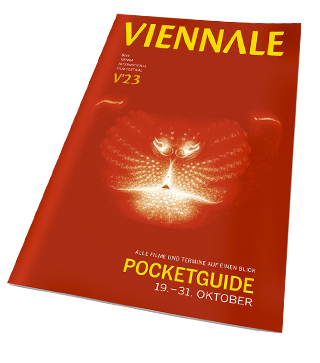RETROSPECTIVE FRITZ LANG
OCTOBER 18 - NOVEMBER 29
It’s not easy with the classics. They “smell” of school classrooms, of compulsory exercises you endure rather than enjoy. The reading of classic literature and the viewing of classic films are often done as an educational experience, the “teachers” increasingly selling them as indispensable to the “students” as they lose interest in the work themselves. Their efforts generally fail for a simple reason: you can’t force a reader or viewer to connect authentically with a body of work, no matter how good the arguments are. Fritz Lang once put it this way: “If you premise your work upon theories or arguments, you create something dead.” Thus, the pleasure of the classics comes about solely through a personal approach, where prevailing judgments don’t count because nobody has a need for them.
In the pantheon of ultimate classics, Lang has his place next to Hitchcock, Chaplin, Ford and Renoir. But Lang possibly has an especially hard time emancipating his works from scholarly opinions: when you think of him, you don’t only think of the monocle-wearing star director of
METROPOLIS, M and the DR. MABUSE films; you also think of the man to whom Goebbels offered the directorship of German film production in 1933. He refused it and became an emigrant, fleeing via France to the USA, where he lived and worked mostly under tough conditions for the next 40 years. In addition to the aura of classics that hangs over his name and work, they are shrouded just as much in a fateful fog of 20th century history that’s as thick as the mythological mist in the woods of “Die Nibelungen”. Seen this way, our view of Lang’s American œuvre in particular, covering 22 films of virtually every genre – more than he made in Germany, is obscured.
Thus it is less well-known among people interested in films, irrespective of whether they’re young guys from the German- speaking world or inveterate movie buffs. The many things that Lang was able to preserve and refine in his American work, and the equally many things he had to abandon, bear eloquent and moving testimony to the artist’s biography. It speaks volumes to us if we can see both his German and American films in close vicinity to each other.
So when the Viennale, to mark its 50th birthday, dedicates together with the Austrian Film Museum a retrospective to a famous son of the town – Lang was born in Vienna in 1890 –, you have the chance to rediscover one of the most “classical classics” and how his films still speak to us in today’s difficult times. In the same way as Lang himself had to struggle, struggle is a basic necessity for his heroes too. Young Godard once wrote that a typical scenario for “the most Germanic of American directors” is the following: A quite normal guy who leads a quite normal life all of a sudden loses something indispensable in his life. Now he is forced to come out of his shell and struggle against his unfavorable fate, seeking justice at his own initiative. “It’s not so important whether he wins or not,” Lang said on numerous occasions, “but that he wages a struggle, as it is essential for the hero’s life.” Human beings in Lang’s world are always changeable: his heroes are neither positive nor negative per se, but always have to find out what’s positive or negative in themselves when they face the conflict. (Text: Stefan Flach)
In addition to the retrospective, which comprises over 40 films, there will be a book on Lang. It will feature original essays, interviews, autobiographical texts and documentation on each single film.
A RETROSPECTIVE BY VIENNALE AND AUSTRIAN FILM MUSEUM

